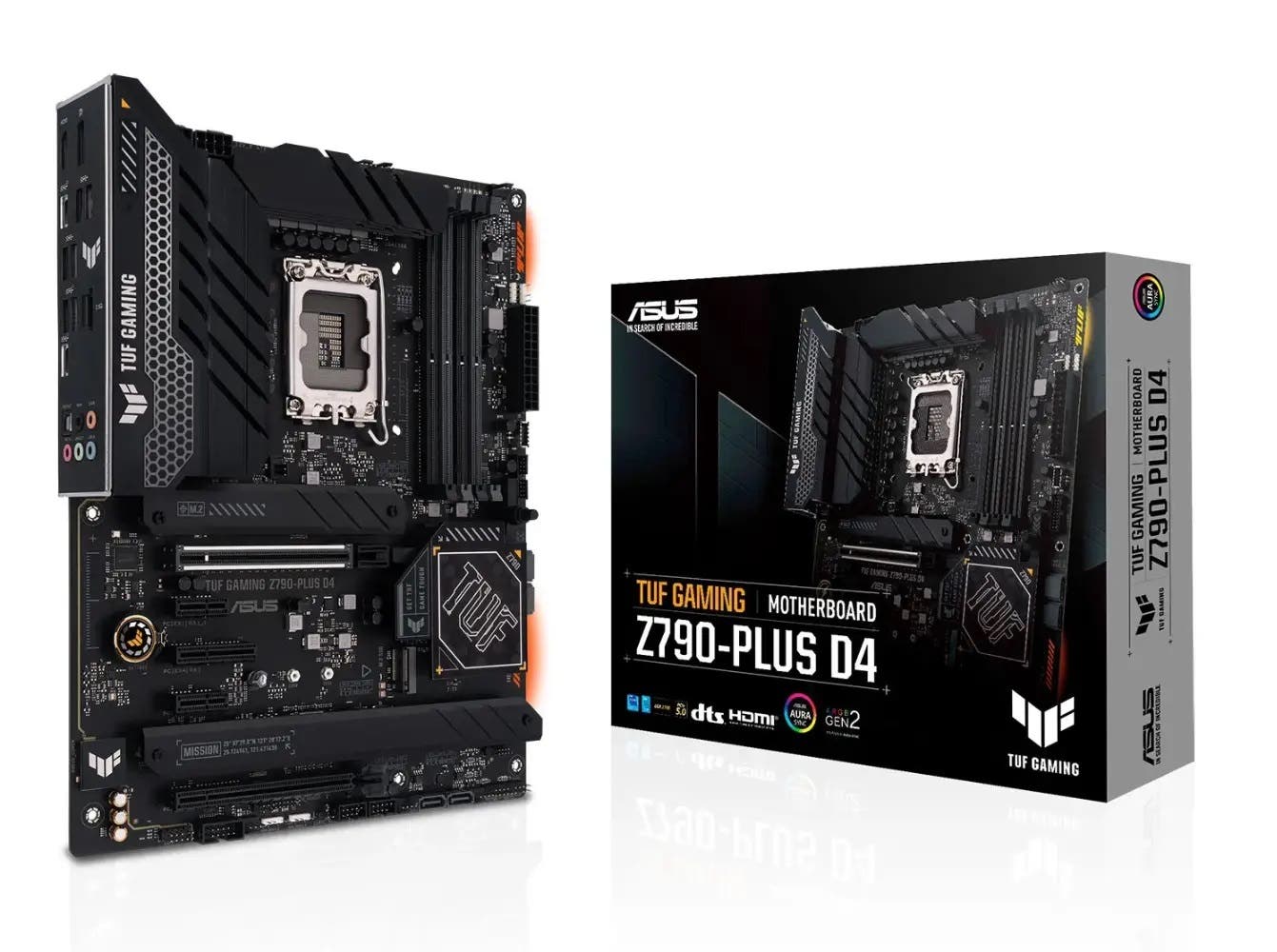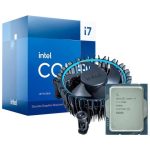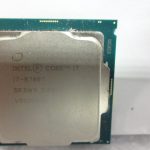When it comes to building a high-performance computer, the central processing unit (CPU) is the heart of the machine. A powerful CPU can make a vast difference in the overall computing experience, impacting everything from basic tasks to intensive gaming or content creation. Among the leaders in the CPU market, Intel’s Core i7 series has been a go-to for consumers seeking a balance between power and price. The Intel Core i7-13700KF is a prominent model, and in this article, we’ll compare it against its main competitors to help you make an informed decision for your next build.
Performance and Speed
Intel Core i7-13700KF
The Core i7-13700KF is part of Intel’s 13th generation and features 16 cores (8 Performance-cores and 8 Efficient-cores) and 24 threads. With a base clock speed of 3.4 GHz and a max turbo frequency of 5.4 GHz, this CPU is designed to handle demanding applications. It also has a large L3 cache size of 24MB, which helps in processing large data sets quickly.
The ‘KF’ in its name indicates that this CPU is both unlocked, allowing for overclocking, and that it does not have an integrated GPU. This is ideal for users who prefer to use a discrete graphics card for their video output needs.
Competitor CPUs
The AMD Ryzen 7 5800X is a worthy adversary with 8 cores and 16 threads. It operates with lower base and boost clock speeds compared to the i7-13700KF, and it has less L3 cache, but AMD’s architecture and efficiency often translate into competitive real-world performance.
Additionally, the Ryzen 9 series steps up the game with more cores and threads, potentially offering better multitasking capabilities. However, they come with a higher price tag.
On Intel’s side, the Core i9 series also competes with the i7-13700KF. These CPUs generally provide better performance with more cores and threads, but the improvements might not justify the price difference for all users.
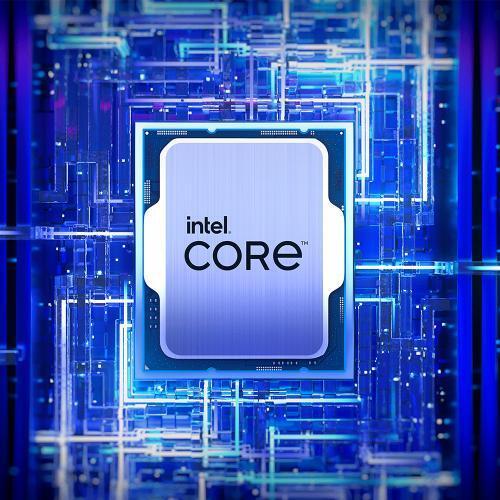
Features and Technology
Advanced Technologies
Intel equips the Core i7-13700KF with several advanced technologies. It supports PCIe 5.0, delivering faster data transfer rates for high-speed components. Intel’s Thermal Velocity Boost technology provides improved thermal management and performance.
The CPU is also compatible with Wi-Fi 6E and Thunderbolt 4 for rapid connectivity. Moreover, it supports DDR5 memory, which offers improvements in speed and efficiency over the older DDR4.
Software and Compatibility
Software optimization can greatly affect CPU performance. Intel CPUs often benefit from broader optimization in games and professional software. Users invested in specific applications should consider software compatibility and optimization when choosing their CPU.
Applications that leverage Intel’s Quick Sync Video technology, for instance, will perform better with an Intel processor than its competitors.
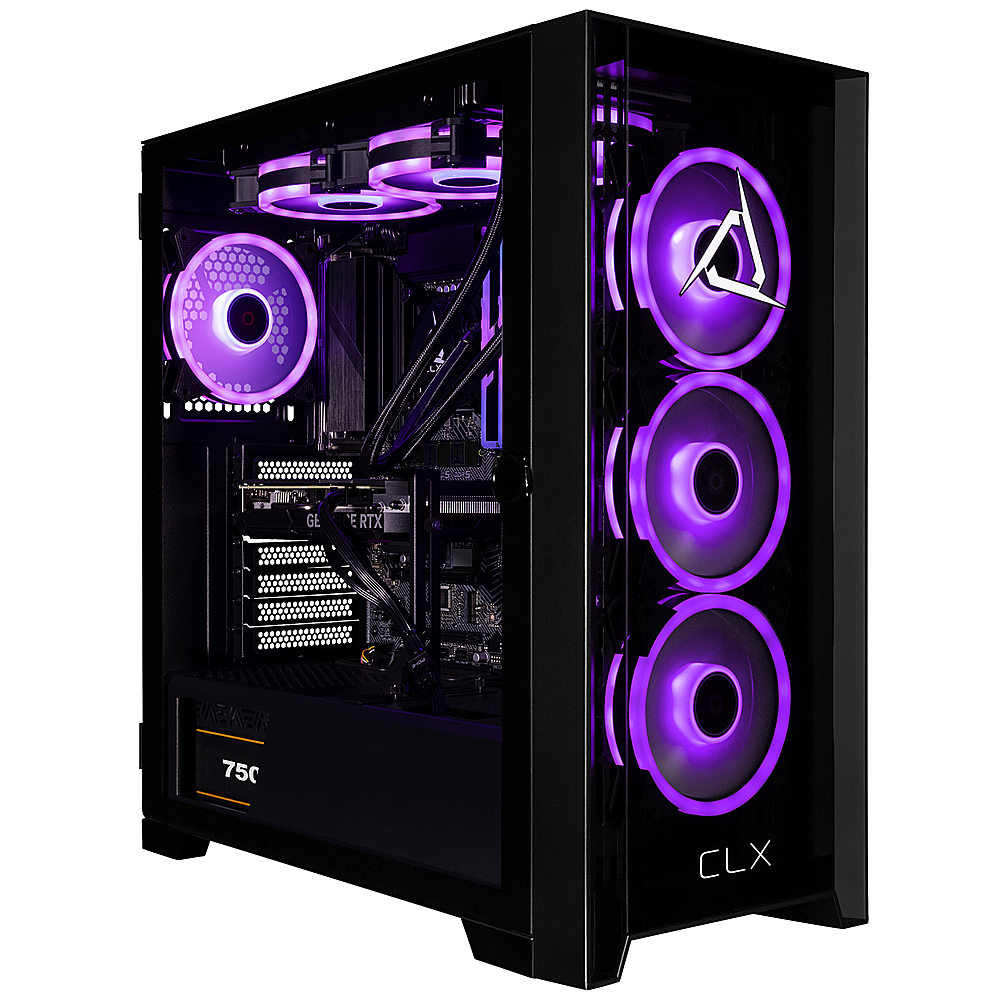
Energy Efficiency and Cooling
Power Consumption
The Core i7-13700KF has a Thermal Design Power (TDP) of 125 watts, which can increase significantly under heavy loads, especially when overclocked. Efficient cooling is essential to maintain performance and system stability. Users should consider investing in high-quality cooling solutions, such as liquid cooling systems, for this CPU to unlock its full potential without thermal throttling.
Competitor Efficiency
AMD’s Ryzen CPUs are known for their energy efficiency, which can be a deciding factor for some users. Ryzen CPUs sometimes provide a better performance-per-watt ratio than their Intel counterparts. For users concerned about energy consumption and heat, this can be a significant advantage.
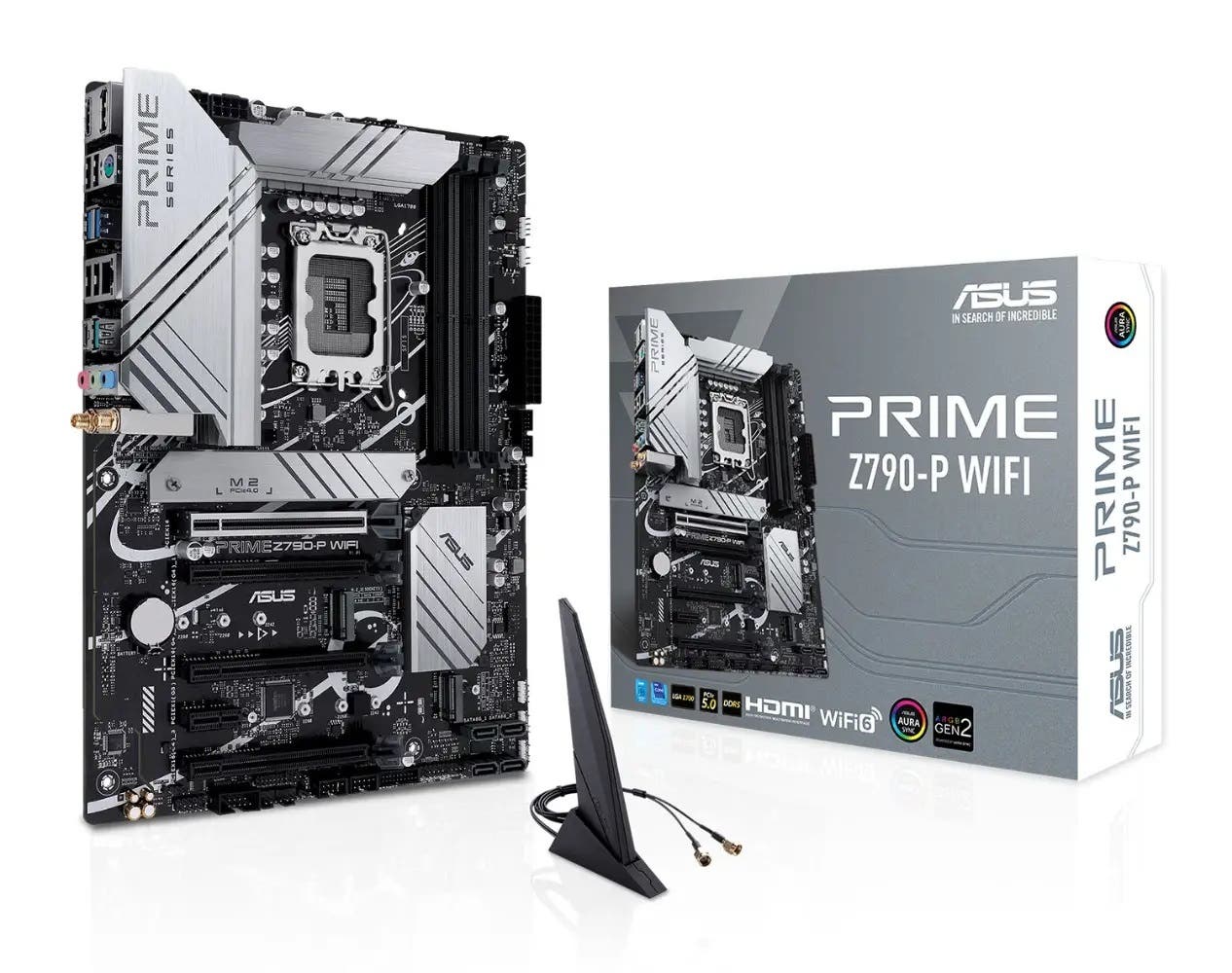
Price and Value
Budget Considerations
The Core i7-13700KF aims to strike a balance between cost and performance. It is generally more affordable than the higher-end i9 models and Ryzen 9 counterparts, but that comes at the sacrifice of some performance benefits.
Long-term Value
Beyond the initial purchase price, consumers should consider the potential longevity of their investment. The CPU’s ability to keep up with future software and games, its overclocking headroom, and the need for additional cooling equipment all factor into the total cost of ownership.
CPU purchases do not happen in a vacuum; users must also account for the motherboard and RAM compatibility, and whether existing parts can be reused.
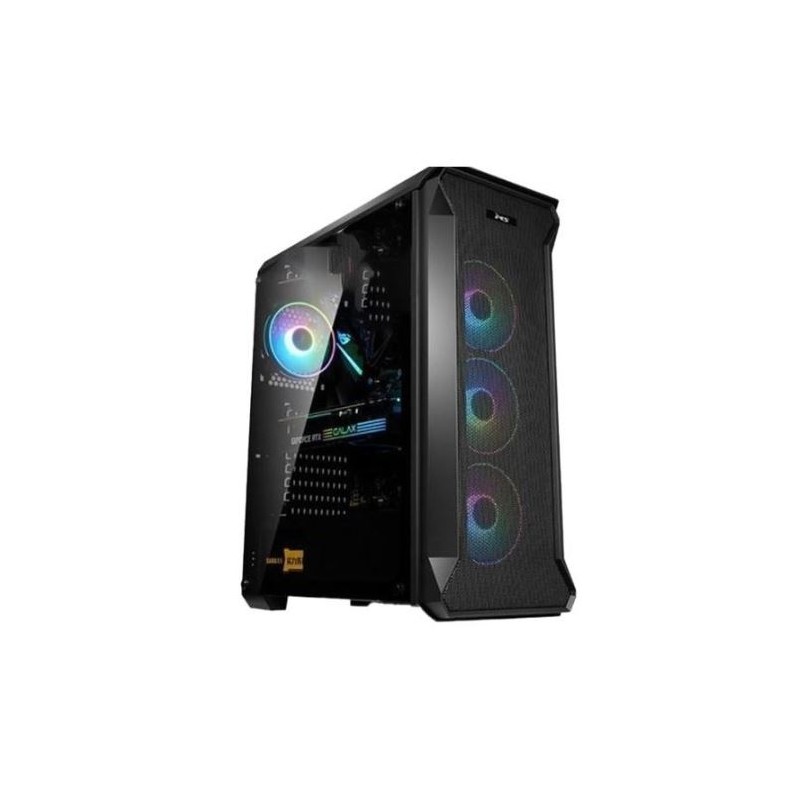
Intel’s move to supporting DDR5 and PCIe 5.0 means that while the i7-13700KF might require a more significant upfront investment in compatible components, it positions users to take advantage of next-generation technology for a longer period.
Comparing CPUs
Selecting the right central processing unit (CPU) is crucial when it comes to assembling a personal computer, be it for gaming, content creation, or high-end office work. Intel has long been a dominant player in the CPU market, and its Core i7-13700KF stands out in the 13th generation of processors, offering a significant edge in multi-threaded environments. How does it fare against its competitors, though? It’s essential to evaluate performance, energy consumption, future-proofing, and most importantly, value for money.
Chip Architecture and Performance
The Core i7-13700KF boasts Intel’s hybrid architecture, combining Performance-cores (P-cores) and Efficient-cores (E-cores) for optimal workload handling. AMD’s latest offerings, while not featuring an identical hybrid approach, compensate with their Zen 3 architecture. This provides exceptional IPC (Instructions Per Cycle) improvements, challenging Intel’s dominance, particularly in the Core i7’s market segment.
In comparison to like-for-like competitors, the i7-13700KF generally leads in single-core performance, which is vital for gaming scenarios. However, AMD’s Ryzen series, especially those with higher core and thread counts, can demonstrate superior multi-threaded performance that benefits video rendering and scientific computations.
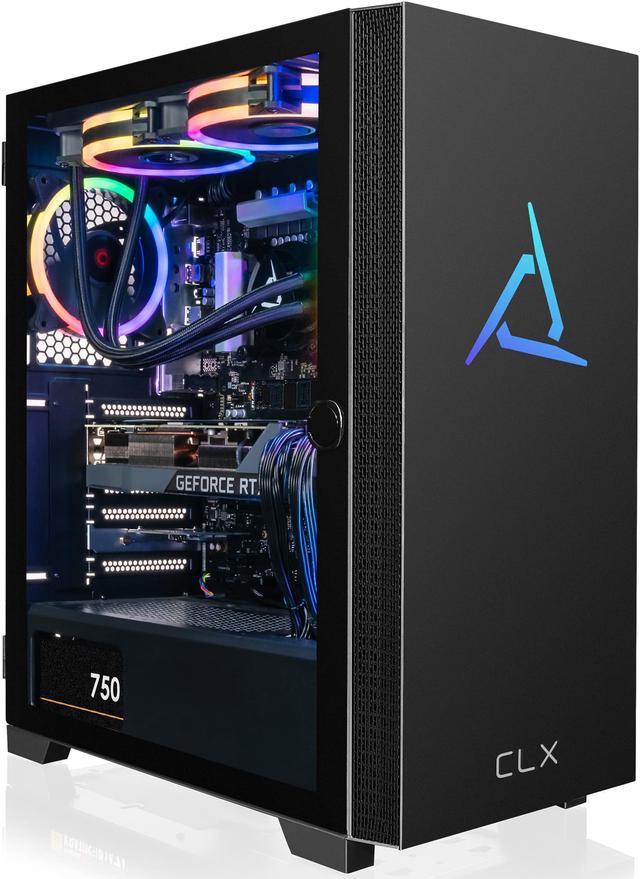
Thermal Management
Efficient thermal management impacts the CPU’s longevity and performance consistency. Intel’s i7 line, especially the unlocked ‘KF’ models like the i7-13700KF, are notorious for higher heat output under load due to their aggressive boost clocks. This necessitates a robust cooling solution, adding to the overall system cost.
Ryzen CPUs, with lower TDP ratings across their stack, may offer an advantage in cooling requirements—potentially reducing both noise and upkeep expenses. Nevertheless, the actual temperature can vary widely depending on the specific workload and the efficiency of the cooling system employed.
Ecosystem and Upgrade Path
When considering the Intel Core i7-13700KF, it’s important to look at the accompanying ecosystem. Intel’s platform supporting the i7-13700KF includes support for PCIe 5.0 and DDR5 memory, which are cutting-edge technologies with headroom for future expansion. This positions any build around the i7-13700KF to be more future-proof.
Competitor CPUs like AMD’s Ryzen may not offer the same level of future-proofing with PCIe 4.0 and DDR4 memory support. However, they frequently support a broader range of motherboards and can offer a better upgrade path within the same chipset, allowing users to swap to a more powerful Ryzen processor later without a complete motherboard overhaul.
In summary, the Intel Core i7-13700KF represents a strong contender in the CPU market, bringing high performance, albeit with some considerations around thermals and system cost. Its competitors from AMD offer strong alternatives, balancing multi-threaded muscle with energy efficiency and potentially lower initial costs. For the discerning consumer, the choice will depend on a matrix of factors including performance needs, upgrade plans, and budget constraints.
